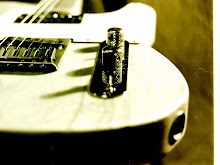I just got around to watching the second edition (actually Part 1) of the two documentaries on the Lennon/McCartney songwriting partnership. (I wrote a lengthier post about the first one I saw, Part 2, almost a year ago, which you can read here.)
This installment, Composing the Beatles Songbook: Lennon and McCartney 1957 - 1965, covers the early years of the partnership, examining how the two musicians developed and began to assert their own styles and voices, while also continuing to work collaboratively on many occasions (at least during this period).

Insightful commentary and interviews with friends who were there at the time add considerable nuance to the typically over-simplified summary of the pair’s individual songwriting styles and influences. The film also debunks the myth that the band was initially John’s; a common assumption based on the fact that he was the founder and leader of The Quarrymen, the band which Paul joined before the group evolved into The Silver Beatles and then just The Beatles. It makes a compelling case that Paul quickly assumed co-leadership with John based on the duo’s superior composing skills and stage presence.
The documentary dissects Paul’s emergence as an exceptional pop songsmith (and sheds light on the roots of those sensibilities), while also providing one of the more thorough explorations of Dylan’s pronounced influence on John’s songwriting in 1964 and ’65. The detailed examinations of McCartney’s “Can’t Buy Me Love” and Lennon’s “Hard Day's Night” (Who knew they were both blues songs, in their own, early Brit-pop, kind of way?), as well as John’s confessionals, “Help” and “Norwegian Wood,” are particularly interesting.
While the music involved and the story of the dynamics between the duo is undoubtedly more compelling in the second DVD, spanning 1966 - 1970 (again, you can read more about that here), this view of the early years is surprisingly substantive and entertaining – even without any direct commentary from the composers themselves. The bottom line is that there was a lot there, even in those early days when they were simply Mop Tops (or, at least, so perceived).
If you like The Beatles, or just appreciate the art of songcraft, I highly recommend checking out both of these documentaries.
The Beatles’ first fully acoustic song, “You’ve Got to Hide Your Love Away,” from 1964’s soundtrack to the second Beatles’ movie Help, is one of several examples of the strong Dylan influence on John Lennon’s songwriting.





No comments:
Post a Comment